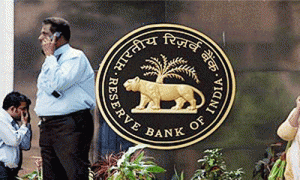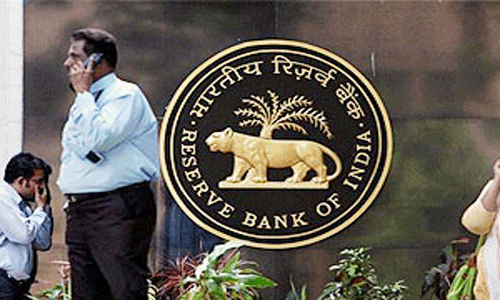By: Ravi Sinha
 Track2Realty: The real estate sector has been hoping against hope that the rates will be marginally cut in order to keep the sentiments bullish. Reports of foreign funds warming up and the substantial contribution of the sector, 6 plus to the Indian GDP was also being seen as an indication of why the policies would be eased.
Track2Realty: The real estate sector has been hoping against hope that the rates will be marginally cut in order to keep the sentiments bullish. Reports of foreign funds warming up and the substantial contribution of the sector, 6 plus to the Indian GDP was also being seen as an indication of why the policies would be eased.
A section of market watchers also maintained this being in all probability the last policy review by the present governor as he demits office in September, chances of the RBI Chief granting a wish or two to the business community was high. However, to the disappointment of the India Inc in general and real estate sector in particular the RBI Governor, D. Subbarao, kept policy rates unchanged at Tuesday’s quarterly monetary policy review.
Consequently, the key repo rate remains at 7.25 per cent while cash reserve ratio remains at 4 per cent. The pause in the easing cycle of the RBI set in motion in April 2012 continues. During the past one-and-half years, the RBI has cut rates by 1.25 per cent to a level of 7.25 per cent.
Anshuman Magazine, CMD of CBRE South Asia admits that the RBI’s decision to keep the key policy rates unchanged is on expected lines, considering its priority is now to defend the weakening rupee. He, however, maintains taking steps to support economic growth is also of paramount importance at the moment, considering the low investor sentiment prevalent in the market. The real estate market remains sluggish, and it was the need of the hour to provide a boost to the cash-strapped market.
The real estate, for obvious reasons, has not been amused. Sitting over piles of debt and unsold inventory, they needed some sort of symbolic, if not substantive, relief to the buyers to revive the demand in housing.
M3M India Director Pankaj Bansal says RBI has taken a judicious decision in retaining key policy rates at existing levels as the country is dealing with a difficult situation of high inflation, slow-down in industrial production, increasing Current Account Deficit (CAD) and an alarming erosion in the Rupee Dollar exchange rate.
“The immediate need is to reduce the CAD and stabilize the rupee’s slide. This can be addressed satisfactorily by taking measures that will incentivize local and global investments. The RBI must also help prevent further reduction in funds flow to all sectors of the economy. Prominent amongst these are industries with large capital requirements and employment potential like the real estate and infrastructure sectors,” says Bansal.
How far is this unchanged rate a dampener for the real estate business? Well, the sector maintains the apex bank has not been fair to the sector and in order to manage the shortages they are losing over the large picture of creating surpluses. Even the stock market seems to have disapproved the policy review and Sensex in general and the realty index in particular went into red following the announcement of repo rate and CRR kept unchanged.
But the RBI maintains the decision to keep rates unchanged was taken while resisting intense pressures from many quarters. The RBI decision follows a careful assessment of the current situation, and is in line with the stance taken by it in the past few days to come down heavily on the speculations in the foreign exchange market.
Sanjay Dutt, Executive Managing Director- South Asia, Cushman & Wakefield believes given the current depreciation of the rupee and resulting concerns on the increasing inflation and Current Account Deficit, the markets had been expecting the RBI to not make any changes to the existing interest regime. The expectations of various businesses, including the real estate sector are that it is more up to the Government rather than the RBI to boost economic activity through comprehensive regulatory liberalisation and introduction of pro-business policies.
“Though there are talks of investments slowing down in emerging economies such as India due to the rollback of US quantitative easing measures, we are confident that there are sufficient investment funds available for the Indian real estate sector from non-banking sources. Over USD 2 Billion Private equity investment has been raised for real estate. Both developers and corporate occupiers and/or buyers have been operating in subdued yet growing market conditions since last year and they are geared up to do so until the next year when market conditions and the economy on a whole pick up pace. The lowering of the GDP growth estimations for 2013 by 20 basis points by the RBI will further ensure that they approach their growth plans more cautiously for the next 6-12 months. Hit by the inflation rates, low and mid-income earning individual buyers may wait longer until the conditions are ripe for either interest rates to reduce and/or developers lower prices to make their housing purchases, ” says Dutt.
But the policy review has definitely dented the psyche of average home buyers. Rakesh Arya, a prospective home buyer feels the rates are too high to think of buying a house now. Had it been reduced the kind of inventory that is piling up could have been sold to home seekers who are mostly working class and not investors, hence high rates pinching at this moment.
Realty analysts also maintain that it is not about the cheaper funding to the developers that is the issue as the developers are anyway getting funds with the foreign investors warming up to Indian real estate. The RBI policy and the demand to reduce the interest rate has more to do with the home buyers’ getting cheaper loans since inflation has already made them apprehensive of investments with borrowed capital and EMI over a long period of time.
Requesting anonymity a source with RBI admits, “We do understand the home buyers’ needs and the role of housing in revitalising the economy. Already the apex bank has raised the rates for short-term borrowings by the banks from it as part of efforts to curb liquidity in the system with a view to shore up the rupee against the greenback. But just look at the havoc the bank stocks have suffered in the past one year could be understood from the price erosion they have suffered, including the country’s premier bank SBI.”
The RBI’s concerns have been taken by a section of real estate developers as well. David Walker, Executive Director, SARE Homes admits that the fact that the RBI refrained from increasing the rates is positive sign. He, however, feels this particular monetary policy was more about liquidity strengthening and arresting the damage being caused by rupee depreciation.
“It is however important to see if RBI decides not to increase key policy rates going ahead for the year. If the current account deficit improves and the liquidity measures are rolled back, we are confident demand will improve in the real estate sector by the end of the year,” says Walker.
Falling rupee against dollar seems to be more driving the RBI policies as of now, instead of falling sales in the real estate business. And hence, the stalemate continues for the sector for some time now and the only hope that the realty fraternity has is that the new RBI Governor will better understand the concerns of the sector and most importantly, its role in reviving the economy.





